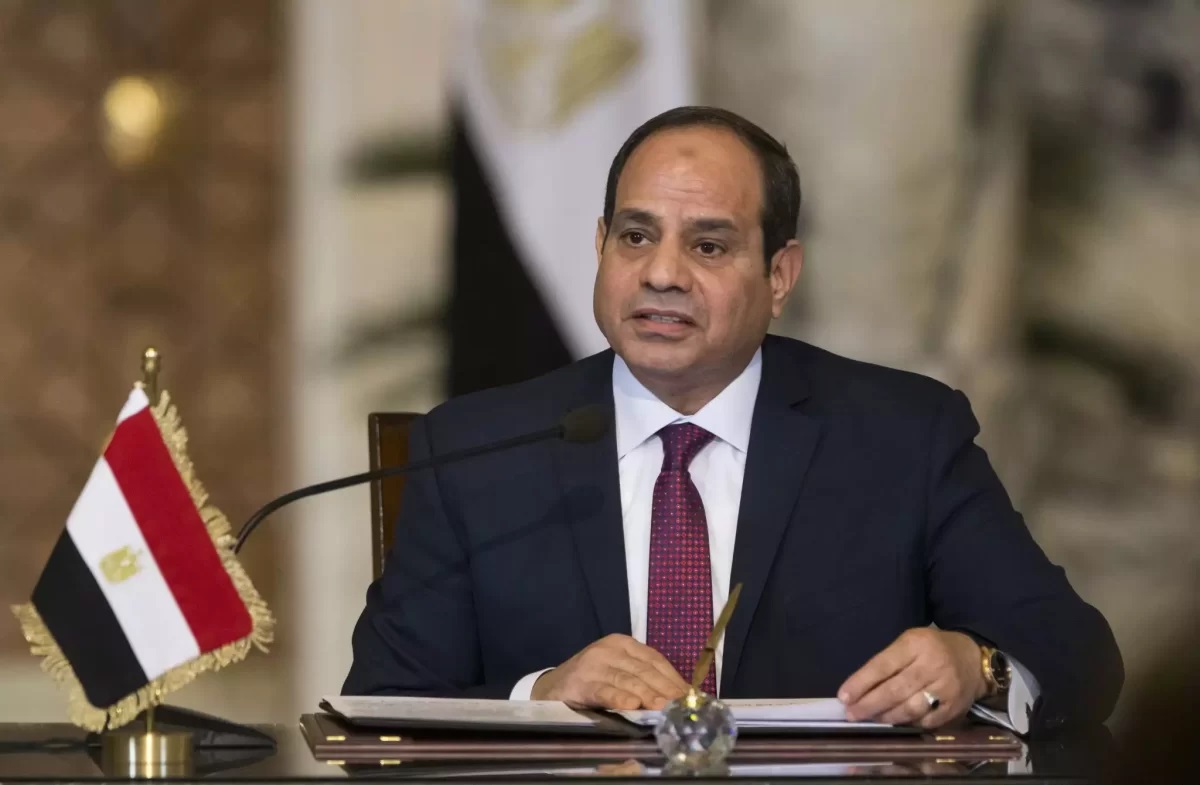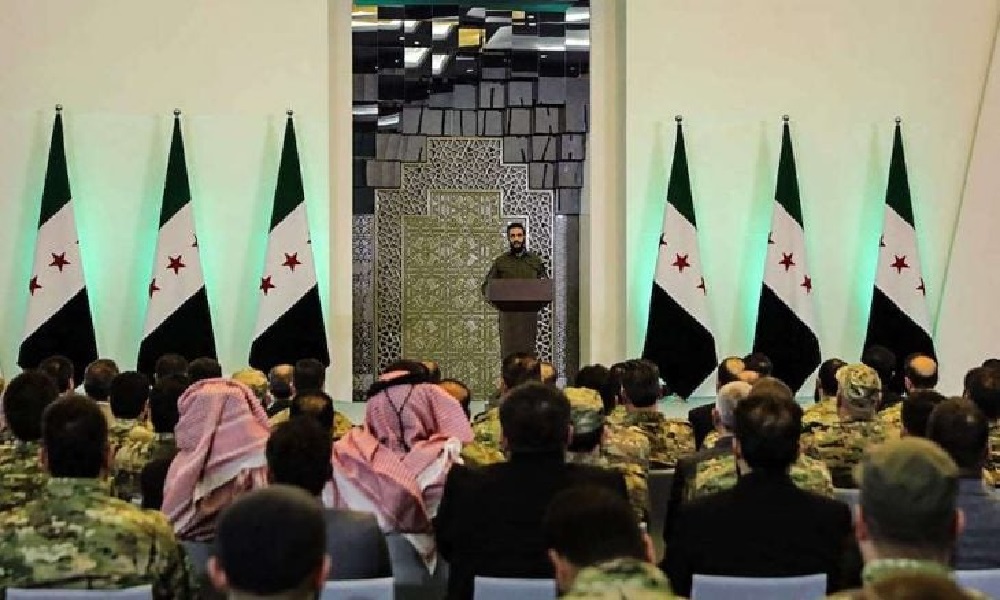Watan-It is expected that the Syrian transitional president, Ahmad al-Sharaa, will participate in the emergency Arab summit to be held in the Egyptian capital, Cairo, on February 27. Sources in Damascus confirmed that the Arab League “has extended an invitation to President al-Sharaa to attend the emergency Arab summit later this month” in Cairo.
Egyptian diplomatic sources revealed on Sunday that Cairo had received indications that al-Sharaa would attend the summit as Syria’s representative. The summit, called for by Egypt, aims to discuss the situation in Gaza and counter Israeli and American plans regarding the displacement of Gaza’s residents.
Al-Sharaa to Meet Egypt’s Sisi at Emergency Arab Summit in Cairo
The same sources stated that, upon receiving these indications in recent communications, Egyptian authorities are currently working to arrange a meeting on the sidelines of the summit between Egyptian President Abdel Fattah el-Sisi and al-Sharaa.
On Sunday, the Egyptian Ministry of Foreign Affairs announced that Cairo would host an emergency Arab summit on February 27 to address the serious developments in the Palestinian issue.
This emergency summit will mark the first major Arab political event in which al-Sharaa participates since assuming the presidency during the transitional phase late last month and undertaking the “responsibilities of the presidency of the Syrian Arab Republic and representing it in international forums.”

The Significance of Al-Sharaa’s Participation in the Arab Summit
The Arab League had suspended Syria’s membership in late 2011 due to the ousted regime’s refusal to cooperate in finding a political solution to the Syrian crisis. While the ousted regime regained Syria’s seat at the Arab League in 2023, it continued to ignore Arab demands for a resolution to the Syrian issue until its downfall in December of last year.
Political analyst Moayad Ghazlan commented on al-Sharaa’s anticipated participation in the emergency Arab summit in Cairo, describing it as a sign of Syria’s “return to an active Arab role.” He added that this participation is clear evidence of a consensus among influential Arab states—such as Saudi Arabia, the UAE, and Qatar—to legitimize the new Syrian government.
According to Ghazlan, al-Sharaa’s participation represents an explicit Arab acknowledgment of the need to establish regional security and stability following the downfall of Bashar al-Assad’s regime. He views this participation as a major Arab step toward “supporting stability in Syria, which aligns with the broader regional stability.” He added that such stability requires backing Syria’s political and economic transition to build a new Syria.
He further stated, “Syria today presents a significant investment opportunity for Arab companies, particularly in reconstruction. Arab states have the right to claim the largest share of this investment. I believe this is the first time that regional security and the need to establish economic and political stability in Syria are so closely aligned.”
Seeking Political Support
Al-Sharaa is expected to use his participation in the emergency Arab summit to seek political support from Arab countries, particularly to push the West to lift the sanctions imposed on Syria during the era of the ousted regime.
Several Arab nations, led by Qatar and Saudi Arabia, have already provided humanitarian aid to the Syrian people, reflecting a broad Arab interest in achieving stability in Syria after the fall of Assad’s regime.
It is also believed that al-Sharaa will take advantage of the summit to garner broad Arab support against Israel’s increasing military incursions into southern Syria following Assad’s downfall. This includes the occupation of new Syrian territories, such as Mount Hermon in the countryside of Quneitra. Since Assad’s fall, Israel has carried out its largest aerial bombardment campaign in history, targeting most of Syria’s military assets, including weapons, ammunition, research centers, warehouses, airports, and military headquarters. The goal of these attacks has been to neutralize Syria militarily for decades to come.
Political analyst Ahmad al-Qurbi told that it would not be surprising if Israeli attacks in southern Syria were added to the summit’s agenda at Syria’s request. He stated, “Damascus undoubtedly seeks at least Arab sympathy against these attacks and a stronger Arab condemnation of Israeli aggression.”
He further noted that “the topic of the upcoming summit and its location reflect the importance of Syria’s participation,” adding that “the invitation extended to President al-Sharaa marks the beginning of breaking the ice between Egypt and the new Syrian administration.”
Al-Qurbi expressed his belief that al-Sharaa’s attendance constitutes “official Arab recognition of the legitimacy of the new administration, which is a significant step toward gaining international recognition as Syria’s representative at the United Nations.”
Strengthening Ties with Arab States
Political analyst Bassam al-Suleiman stated that “al-Sharaa’s participation is an opportunity to hold meetings with influential Arab leaders, including Egypt.” He noted that, with the exception of Iraq, there is growing openness in the Levant toward the new Syrian administration. However, Arab states in Africa remain hesitant, making the summit a key opportunity to bridge relations between the new Syrian leadership and the Arab world.
In his first foreign visit after being sworn in as Syria’s president, al-Sharaa traveled to Saudi Arabia on February 2, signaling his government’s reliance on Arab political and economic support to overcome Syria’s multiple crises. Additionally, Syrian Foreign Minister Asaad al-Shibani visited three Arab capitals—Doha, Riyadh, and Abu Dhabi—immediately after taking office, emphasizing that the new Syrian administration’s political approach is based on strengthening ties with all Arab countries.
-
-
-
-
-
-
